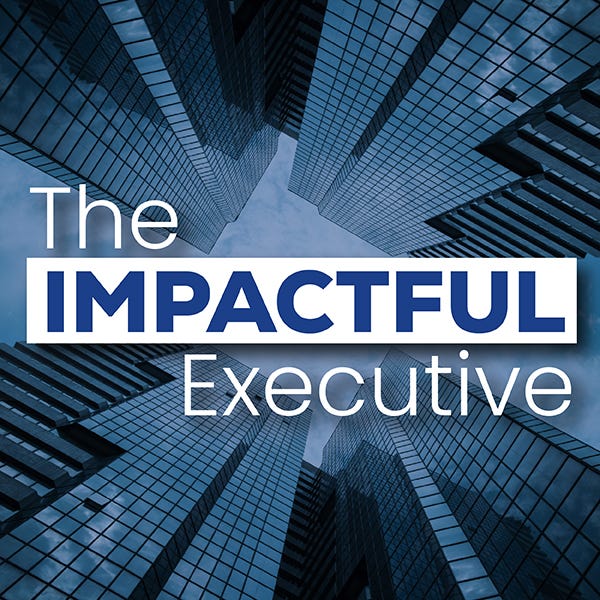Impactful Element: Attention
Impactful "Attention": mindful, strategic organization of time, focus, and resources.
Welcome to The Impactful Executive!
Read time: 2.5 min
The Impactful Executive newsletter uses the Impactful Framework as a loosely structured sequence of nine elements, each with evidence-based practices and tactics for executives, managers, advisors, and their teams.
See the reference article below, if needed, before this Element deep dive.
The Impactful Framework
Evidence-based practices for executive teams.
“Strategy without tactics is the slowest route to victory. Tactics without strategy are the noise before defeat.”
Sun Tzu
Impactful Element Defined: Attention
"The secret of getting ahead is getting started. The secret of getting started is breaking your complex overwhelming tasks into small manageable tasks, and starting on the first one."
Mark Twain
"Who you are, what you think, feel, and do, what you love — is the sum of what you focus on."
Cal Newport
The “Attention” element is defined as:
The strategic allocation of time, energy, and resources.
Consciously directing focus towards tasks that significantly contribute to achieving set goals.
Balancing the immediate demands of tasks with the long-term objectives of the business.
Requiring mindfulness and complete presence, leading to higher-quality work and increased efficiency.
Controlling distractions and interruptions, enabling one to be more effective and productive.
"The difference between successful people and really successful people is that really successful people say no to almost everything."
Warren Buffet
"Where focus goes, energy flows."
Tony Robbins
Impactful Element Practices: Attention
The following is a sample selection of Impactful Attention Practices:
Prioritize Work Periodically: Use prioritization techniques like the Eisenhower Box to enhance productivity by ensuring focus is on high-value tasks. An example of prioritization is Warren Buffett's '25-5 Rule,' where he identifies his top 25 career goals in a given period and focuses primarily on the top five.
Eliminate Distractions: Promote a culture of managing digital distractions and periods of uninterrupted work. Steve Jobs, the late CEO of Apple, exemplified this with his renowned focus on one task or project at a time, leading to high-quality, innovative products.
Manage Your Time: Good time management can significantly improve productivity. Grouping similar tasks can increase efficiency by reducing the cognitive load of switching between tasks. Elon Musk, CEO of SpaceX and Tesla, employs a time-blocking technique where his day is divided into short slots to manage his time effectively.
Manage Your Energy: Regular breaks during work hours can enhance productivity and prevent burnout. The Pomodoro Technique, which involves breaking work into intervals with short breaks, is a method many organizations and individuals have successfully adopted.
Adhere to Deadlines: Setting and adhering to deadlines can enhance productivity by providing a sense of urgency. At SpaceX (once again), CEO Elon Musk sets ambitious deadlines to encourage his team towards faster innovation.
Practice Mindfulness: Mindfulness can improve focus and reduce errors, improving team performance and productivity. Marc Benioff, CEO of Salesforce, encourages mindfulness among employees. Google's 'Search Inside Yourself' program promotes employee mindfulness training.
Hold Efficient Meetings: Having an agenda and clear meeting objectives can improve the efficiency of meetings. At Amazon, CEO Jeff Bezos has employed a 'two-pizza rule' to ensure meetings are small and focused.
"Either you run the day or the day runs you."
Jim Rohn
"Attention management is the most important skill to have in the twenty-first century."
Maura Thomas
In subsequent newsletters, we will deep-dive into many specific practices outlined above.
The Impactful Executive’s Purpose
Reminder: This newsletter pursues high-impact practices and tactics across each element to share fact-based, usable, and (hopefully) surprising insights.
It takes deliberate and sustained effort to drive organizational greatness. The Impactful Executive aims to make this greatness far more reachable.
In Jim Collins’ words, "Greatness is not a function of circumstance. Greatness, it turns out, is largely a matter of conscious choice and discipline."
Impactfully yours,
The Impactful Executive Team
This post is public. Feel free to subscribe to and share the newsletter below.


